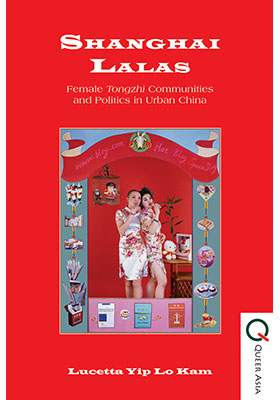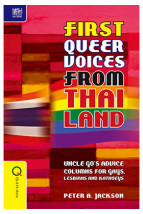Shanghai Lalas
Female Tongzhi Communities and Politics in Urban China
(上海拉拉:中國都市女同志社群與政治)
ISBN : 978-988-8139-45-3
November 2012
152 pages, 6″ x 9″
Ebooks
Also Available on
This is the first ethnographic study of lala (lesbian, bisexual, and transgender) communities and politics in China, focusing on the city of Shanghai. Based on several years of in-depth interviews, the volume concentrates on lalas’ everyday struggle to reconcile same-sex desire with a dominant rhetoric of family harmony and compulsory marriage, all within a culture denying women’s active and legitimate sexual agency. Lucetta Yip Lo Kam reads discourses on homophobia in China, including the rhetoric of “Chinese tolerance” and considers the heteronormative demands imposed on tongzhi subjects. She treats “the politics of public correctness” as a newly emerging tongzhi practice developed from the culturally specific, Chinese forms of regulation that inform tongzhi survival strategies and self-identification.
Alternating between Kam’s own queer biography and her extensive ethnographic findings, this text offers a contemporary portrait of female tongzhi communities and politics in urban China, making an invaluable contribution to global discussions and international debates on same-sex intimacies, homophobia, coming-out politics, and sexual governance.
“More than just an ethnographic observation of women who identify as lala in China, this compelling and impressively researched study analyses the numerous social forces that produce sexual normativity while documenting the intricate ways through which women with same-sex desire negotiate these forces, in public as well as in private. Written with tremendous insight and compassion, this admirable and timely work sheds an important light on the injurious effects of sexual normalization in contemporary Chinese society.” —Helen Hok-Sze Leung, author of Undercurrents: Queer Culture and Postcolonial Hong Kong
“Weaving between her own queer biography and extensive ethnographic data of 25 lala women, Kam presents the up-to-date lesbian communities and politics in urban China which contribute to the international debates of same-sex intimacies, coming out politics and the nature of homophobia.” —Travis S. K. Kong, The University of Hong Kong





